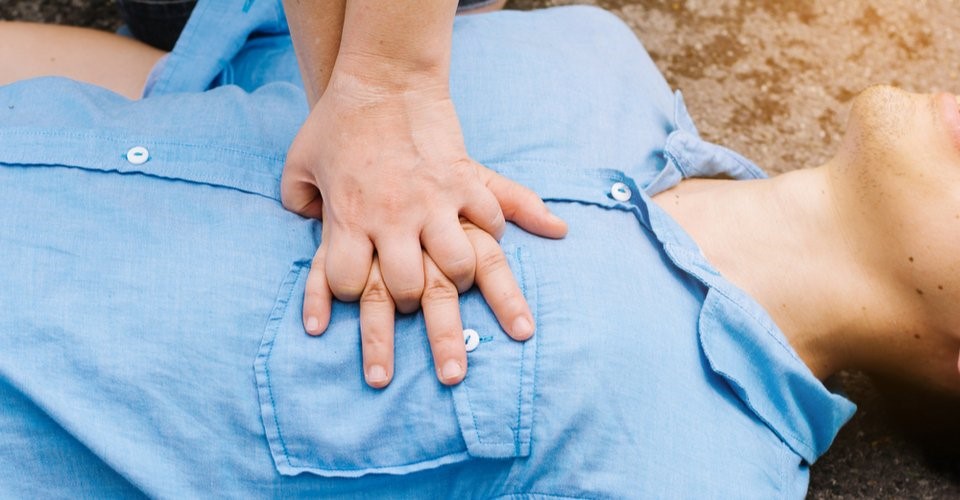WHAT YOU NEED TO KNOW ABOUT COVID-19 AND CPR
September 16, 2020 at 1:24 PM
 We know trained bystanders are the key to survival for cardiac arrest. But some may feel hesitant to provide lifesaving care during the coronavirus pandemic.
We know trained bystanders are the key to survival for cardiac arrest. But some may feel hesitant to provide lifesaving care during the coronavirus pandemic.
Under normal circumstances, bystanders aren’t at a significant risk when performing compression-only CPR. But as detailed by the Sudden Cardiac Arrest Foundation, performing chest compressions on a COVID-19 positive person may potentially spread the virus. Which could make bystanders less willing to respond out of fear for their own safety. Particularly if the responder is older, has an underlying medical condition, or has an immunocompromised person in their family.
Bystanders need to understand the risks for contracting COVID-19 when performing CPR. And then weigh that personal risk along with the knowledge that survival rates without CPR are extremely low.
The guidelines remain the same during COVID-19: if you’re willing and able to provide CPR or other lifesaving actions, then you should. At minimum, call 111 and get help on the way as soon as possible.
If you’re in a public place, consider performing compression-only CPR. You may choose to use a face mask or cloth cover over the victim and/or rescuer’s mouth and nose. However, there isn’t any current data to support this practice.
If you have access to an AED, go ahead and use it without hesitation. According to the SCA Foundation, the use of an AED doesn’t carry an increased risk of dispersing the coronavirus into the air at this time.
The key takeaway is that CPR is still needed, regardless of whether we’re in a global health crisis or not. All bystanders should be aware of the potential risk and make extra considerations for themselves when responding to emergencies.
LEARN CPR
Because approximately 70% of cardiac arrests happen within the home, there’s a good chance that you’ll be responding to a loved one if you’re ever called upon to perform CPR. Amid the coronavirus crisis, that means if the patient is in your household and has COVID-19, you’ve likely already been exposed to it prior to administering lifesaving care.
Additionally, many emergency response systems are experiencing delays due to the current health crisis and other social issues. This only heightens the need for bystander response during emergencies.
Now is a great time to learn CPR and be prepared for other emergencies. See here for available classes and course options in your area.
Blog Source
![]()




